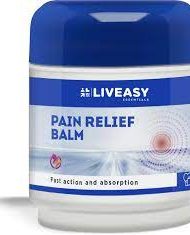pain relievers anti inflammatories antivirals and antihistamines all manage

In the fast-paced world we live in, our health is of utmost importance. We encounter various health issues, from pain and inflammation to viral infections and allergies. Fortunately, there are different classes of medications designed to address these concerns effectively. In this article, we will delve into the world of pain relievers, anti-inflammatories, antivirals, and antihistamines to understand how they can help manage various health conditions.
Contents
- 1 Understanding Pain Relievers
- 2 Anti-Inflammatories: A Closer Look
- 3 Antivirals: Combatting Viral Infections
- 4 Antihistamines: Relief from Allergies
- 5 Pain Management: A Comprehensive Approach
- 6 Inflammation and Its Impact on Health
- 7 The Battle Against Viral Infections
- 8 Allergies: Causes and Triggers
- 9 ADD/ADHD (2)
- 10 Anabolic Steroids (11)
- 11 ANTI ANXIETY (1)
- 12 Anti-Estrogens (1)
- 13 Antibiotics (1)
- 14 Birth Control (1)
- 15 buy Online (5)
- 16 COUGH SYRUP (2)
- 17 DEPRESSANTS AND ANXIETY (14)
- 18 Hallucinogens (5)
- 19 INJECTABLE STEROIDS (1)
- 20 MARIJUANA AND HASHISH (1)
- 21 nervous-stimulants (1)
- 22 OPIOIDS (15)
- 23 Pain Reliever (6)
- 24 Sleep & Insomnia (1)
- 25 STIMULANTS (10)
- 26 WEIGHT LOSS (1)
Must Read: The World’s Leading SilkRoad Black Pharmacy: Empowering Access to Medications
In our journey to better understand pain relievers, anti-inflammatories, antivirals, and antihistamines, we will explore how these medications function, their applications, and the importance of making informed choices regarding their usage.
Understanding Pain Relievers
Pain relievers, also known as analgesics, are a diverse group of medications used to alleviate pain. They are available in various forms, including over-the-counter (OTC) and prescription drugs. Common pain relievers include acetaminophen, ibuprofen, and aspirin.
Types of Pain Relievers
There are two primary categories of pain relievers: non-opioid and opioid analgesics. Non-opioid analgesics, like ibuprofen and acetaminophen, are commonly used for mild to moderate pain, while opioids, such as morphine and oxycodone, are reserved for severe pain.
How Pain Relievers Work
Pain relievers work by interfering with the transmission of pain signals in the nervous system. They can block or reduce the perception of pain, providing relief to individuals suffering from various conditions, including headaches, arthritis, and post-surgery discomfort.
Anti-Inflammatories: A Closer Look
Inflammation is a natural response of the body to injury or infection. However, excessive or chronic inflammation can lead to various health problems. Anti-inflammatories are drugs designed to reduce inflammation and its associated symptoms.
The Role of Inflammation
Inflammation is a complex biological process that involves the release of chemicals and immune cells to protect the body. While acute inflammation is beneficial, chronic inflammation can contribute to conditions like heart disease and arthritis.
Different Types of Anti-Inflammatory Drugs
There are two main classes of anti-inflammatory drugs: non-steroidal anti-inflammatory drugs (NSAIDs) and corticosteroids. NSAIDs, like aspirin and ibuprofen, are commonly used for pain and inflammation. Corticosteroids are potent anti-inflammatories often prescribed for more severe conditions.
Viruses are responsible for a wide range of infections, from the common cold to more serious diseases like HIV and COVID-19. Antiviral medications are designed to inhibit the replication of viruses within the body.
How Viruses Spread
Understanding how viruses spread is crucial in developing effective antiviral treatments. Viruses invade host cells and use the host’s cellular machinery to replicate themselves, leading to the development of symptoms.
Antiviral drugs target different stages of the viral life cycle, preventing the virus from multiplying and spreading. They can help reduce the severity and duration of viral infections, improving recovery rates.
Antihistamines: Relief from Allergies
Allergies occur when the immune system overreacts to allergens like pollen, pet dander, or certain foods. Antihistamines are a common treatment for allergy symptoms.
Allergic Reactions Explained
Allergic reactions can range from mild sneezing and itching to severe anaphylactic shock. Understanding the allergic response is essential in managing allergies effectively.
The Function of Antihistamines
Antihistamines work by blocking histamine, a chemical released during allergic reactions. By inhibiting histamine’s effects, antihistamines can relieve symptoms like runny nose, itching, and hives.
Pain Management: A Comprehensive Approach
For individuals dealing with both pain and inflammation, a comprehensive approach that combines pain relievers and anti-inflammatories may be necessary.
Combining Pain Relievers and Anti-Inflammatories
Combining these two classes of medication can provide more effective relief for conditions like osteoarthritis or sports injuries.
Over-the-Counter vs. Prescription Medications
Understanding the difference between OTC and prescription medications is essential for safe and effective pain management.
Inflammation and Its Impact on Health
Chronic inflammation has been linked to various health problems, including heart disease, diabetes, and cancer.
Chronic Inflammation
We will explore the concept of chronic inflammation and its contribution to various chronic diseases.
Lifestyle Changes to Reduce Inflammation
In addition to medication, adopting a healthy lifestyle can help reduce chronic inflammation and improve overall well-being.
The Battle Against Viral Infections
In the era of emerging viral threats, understanding how antiviral medications work and the importance of vaccination is crucial.
We will compare the roles of vaccines and antiviral medications in preventing and treating viral infections.
Emerging Viral Threats
Exploring the latest developments in antiviral research and their potential impact on future health crises.
Allergies: Causes and Triggers
Ident
Look Our Categories:
-
ADD/ADHD (2)
-
Anabolic Steroids (11)
-
ANTI ANXIETY (1)
-
Anti-Estrogens (1)
-
Antibiotics (1)
-
Birth Control (1)
-
buy Online (5)
-
COUGH SYRUP (2)
-
DEPRESSANTS AND ANXIETY (14)
-
Hallucinogens (5)
-
INJECTABLE STEROIDS (1)
-
MARIJUANA AND HASHISH (1)
-
nervous-stimulants (1)
-
OPIOIDS (15)
-
Pain Reliever (6)
-
Sleep & Insomnia (1)
-
STIMULANTS (10)
-
WEIGHT LOSS (1)
Must Read: Buy Magic Mushrooms Psilocybin Online: Navigating the Landscape of Psychedelic Experiences























Recent Comments